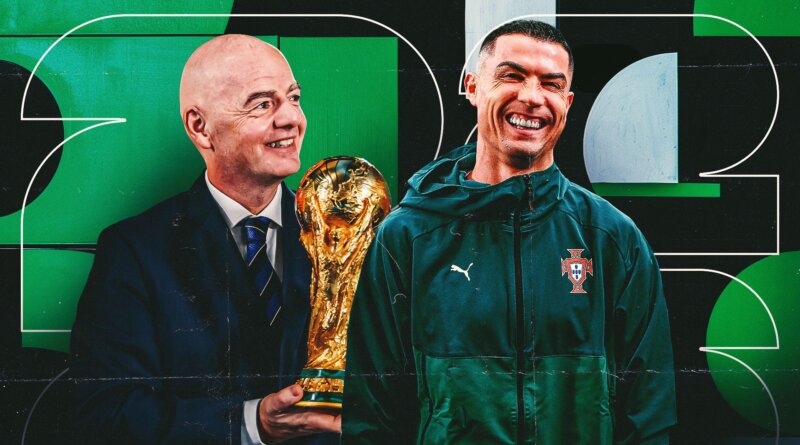FIFA Club World Cup Controversy: Ronaldo Ban Sparks Outrage
FIFA Club World Cup controversy takes center stage once again as football’s governing body faces intense scrutiny after its unprecedented suspension decision regarding Cristiano Ronaldo. The move, which many argue compromises the integrity of the World Cup, has ignited debate across the global football community.
FIFA Club World Cup Controversy: The Messi & Ronaldo Factor
The roots of the current FIFA Club World Cup controversy trace back to Gianni Infantino’s 2024 announcement ensuring Inter Miami’s participation in the 2025 tournament. At the time, Miami’s selection was justified by their standing in the MLS regular season, despite their early play-off exit. The real motivation, however, seemed clear: FIFA wanted Lionel Messi, arguably the sport’s biggest draw, to headline the event and boost global interest.
This history of bending the rules for superstar involvement laid the groundwork for the more recent uproar involving Cristiano Ronaldo. The World Cup, with its rich legacy and sacrosanct status, has now been drawn into a similar debate over fairness and commercial interests.
Ronaldo’s Red Card: A Flashpoint in the FIFA Club World Cup Controversy
During Portugal’s World Cup qualifier against Ireland, Ronaldo was shown a red card following a VAR review for violent conduct—an elbow to Dara O’Shea. Ordinarily, such an offense warrants a three-match suspension, which would have sidelined the Portuguese star for the remainder of the qualifier and the start of the 2026 World Cup.
Yet, FIFA’s disciplinary committee shocked many by suspending the final two games of his ban for a year, contingent on his future conduct. This decision, described by many as unprecedented, immediately fueled accusations of favoritism and further deepened the FIFA Club World Cup controversy. Critics argue the ruling sets a dangerous precedent and prioritizes commercial appeal and superstar participation over the game’s foundational principles.
Commercial Interests vs. Sporting Integrity
FIFA’s motivations, many suggest, are clear. As one of the most influential athletes with unparalleled social media reach, Ronaldo’s presence at the World Cup is invaluable for marketing, sponsorship, and global viewership. This echoes the organization’s earlier attempts to shoehorn both Messi and Ronaldo into premier tournaments, even if it means stretching or selectively applying existing regulations.
The backlash intensified with FIFA’s simultaneous announcement that top-seeded nations will be kept apart until the semi-finals in the expanded 48-team World Cup format. Such a move, critics say, caters to television audiences and commercial partners at the expense of sporting unpredictability and tradition.
The Slippery Slope of Double Standards
This FIFA Club World Cup controversy goes beyond one superstar. By allowing Ronaldo special treatment, FIFA has opened the door for future appeals and challenges. Other federations and players now have a tangible precedent to cite, potentially undermining the disciplinary process and the credibility of football’s global governing body.
Moreover, the sense of injustice has galvanized fans worldwide, who perceive this as yet another example of the game’s elites receiving preferential treatment.
Global Reaction and the Future of the FIFA Club World Cup
Outrage over the decision has dominated social media and sports forums, with many questioning FIFA’s commitment to fair play. Some believe the backlash will fade as the tournament approaches and focus shifts to the draw in Washington D.C. However, the long-term implications of this FIFA Club World Cup controversy are significant. The risk of eroding trust in the organization and the World Cup itself is real, particularly if similar scenarios arise in the future.
For more news, analysis, and the latest on football’s biggest stories, visit for more news.
Opinion: Protecting Football’s Integrity Must Come First
FIFA’s decision to bend disciplinary rules for Cristiano Ronaldo may serve immediate commercial goals, but it seriously threatens the integrity that underpins the World Cup. Football’s governing bodies must resist the temptation to prioritize star power over fairness, or risk damaging the very spirit that makes the sport so beloved. Fans deserve a tournament that values equality and transparency above all else.
Your global gateway to nonstop football coverage:
News Goal
Share this content:
